Jesus’ teaching on judging is one of his most frequently misunderstood sayings, sounding as if he is saying, “Have no discernment. Just ignore sin!” Often we struggle to find a way to sort out sin without actually calling it that so that we do not judge. While Jesus’ ethical demands are high, we often give up trying to follow them if they do not make sense to us.
Jesus’ Jewish Command to Love

Jesus’ command to “love your enemies” was revolutionary! No one before him dared to raise such a high standard for the life of faith.
The Search for Bethsaida: Is It Over?
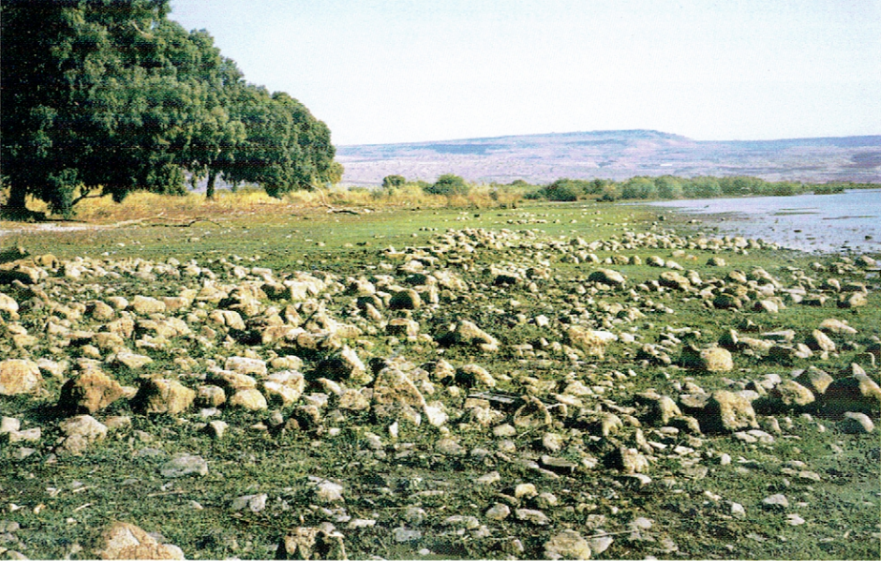
One of the challenging tasks for archaeologists and biblical historians alike is the identification of sites mentioned in the Bible — some of which were destroyed and disappeared in time without a trace. The first comprehensive attempt to locate these sites was that of Eusebius, the fourth-century church historian (ca. 265-339 A.D.).
First-century Jewish Use of Scripture: Evidence from the Life of Jesus
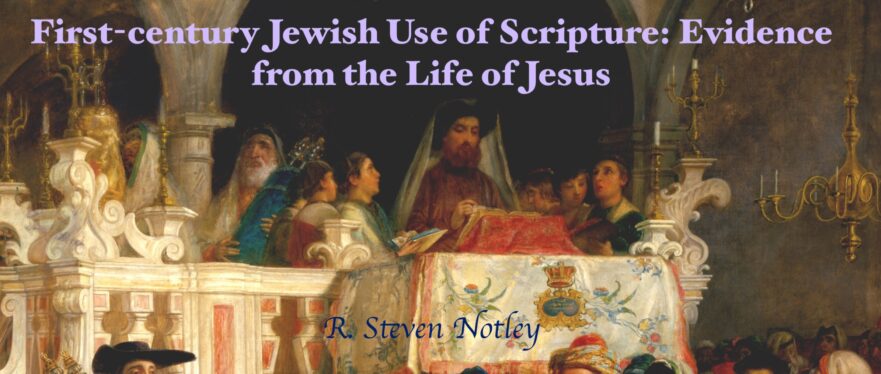
Through the window of a single New Testament episode we can gain insight into how Jesus and his Jewish contemporaries employed sacred texts with creative ingenuity to grapple with the complex issues of their day.
The Interpretive Key to the Four Horsemen of the Apocalypse

Modern readers of the Book of Revelation usually assume that the key to understanding the book lies in discovering a one-to-one correspondence between the figures it presents, and real-life figures. But the correct interpretation of the four horsemen appears only when we consider the four together as a unified symbol of widespread calamity.
The Qumran Targum of Job as a Window into Second Temple Judaism: A Response to Randall Buth’s “Where Is the Aramaic Bible at Qumran? Scripture Use in the Land of Israel”
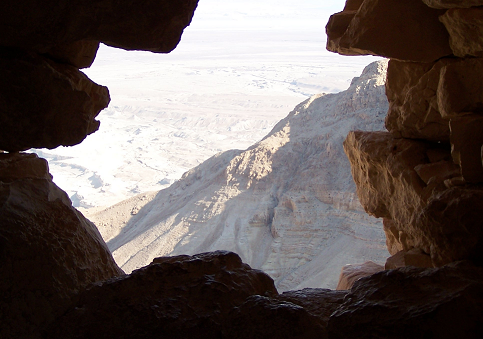
How does one explain the sparseness of the Qumran targumic corpus?
Did the Early Scribes Understand John 9:3 Correctly?
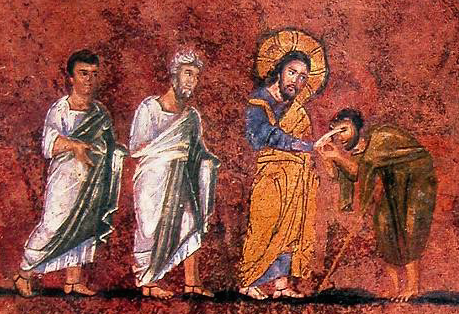
The punctuation found in later manuscripts was added by scribes, and is not original to the New Testament.
More on the Absence of an Aramaic Bible at Qumran: A Response to Jack Poirier’s “The Qumran Targum of Job as a Window into Second Temple Judaism: A Response to Randall Buth”

I appreciate this opportunity to return to some issues concerning the Targum of Job that I raised in Where Is the Aramaic Bible at Qumran? Scripture Use in the Land of Israel and to evaluate Jack Poirier’s response entitled, The Qumran Targum of Job as a Window into Second Temple Judaism: A Response to Randall Buth.
The Cross and the Jewish People
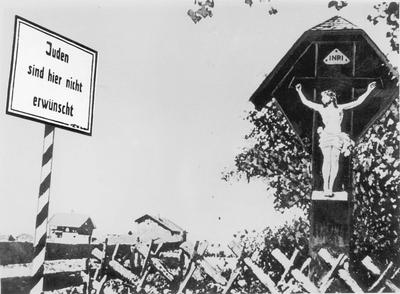
One of the most poignant pictures which exemplify the chasm of historical misunderstanding between Jews and Christians is that found in Yad Vashem, the Holocaust memorial in Jerusalem. It is a photograph of a life-size crucifix that stood outside an unknown German village prior to World War II. In a twist of tragic irony a sign was hung on the cross to warn Jews not to enter the village. It read: “Jews are not welcome here.”
Casting Down Modern Imaginations
Some scholars have plausibly argued that the Enlightenment’s preoccupation with the problem of knowing was a direct product of the Lutheran and Reformed “theologies of the Word” that emerged from the Reformation…
The “Only Begotten” Son
As a small boy growing up in Alabama I had a deep love of God and a real hunger to know him better. By the age of eight I had read the entire Bible. But, like most people, I often struggled to understand what the Scriptures were saying. Many verses didn’t seem to make sense.
One God and Lord

The restoration of the Jewish homeland, Israel, and the reconnection of the Church to its Jewish roots are not unrelated phenomena. Many sectors of the Body of Messiah today are being stimulated and enriched by the “nourishing sap” of Israel’s faith, scriptures and scholarship. We are discovering that there is scarcely a single New Testament subject that cannot be amplified, deepened, or balanced by a Hebraic perspective. As disciples of Yeshua, we are deeply indebted to Israel.
Where Is the Aramaic Bible at Qumran? Scripture Use in the Land of Israel

The documents at Qumran allow us to reconstruct Scripture access in the Province of Judea in the first century. From the evidence, we must assume that the Qumran community and the other Jewish communities in the land had direct access to the Hebrew Bible, generally understood it, and were interested in teaching that related directly to the Hebrew text.
Leah’s Tender Eyes

The King James Version translates Genesis 29:17 as follows: “Leah was tender eyed; but Rachel was beautiful and well favoured.” The New International Version has, “Leah had weak eyes,” while the New American Bible reads, “Leah had lovely eyes.” What did the Hebrew original mean to say?
Romans 11: The Olive Tree’s Root
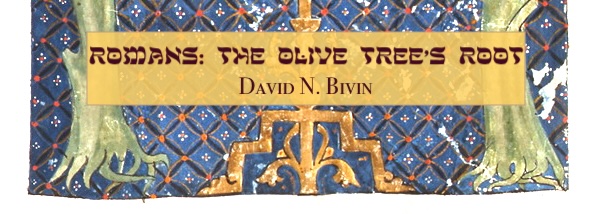
Paul spoke about Israel as a “cultivated olive tree” whose rootage was in the Patriarchs, particularly Abraham. Some Bible commentators, however, interpreted the root of the olive tree as Christ or his messianic program.
The Sabbath Was Made for Man
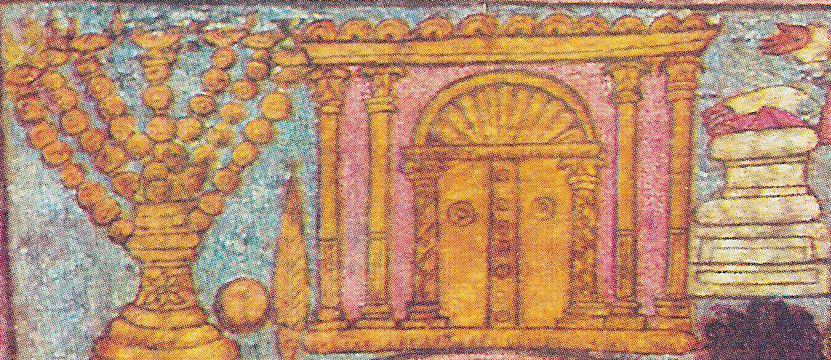
Jesus was no rogue rejecting the Jewish opinion regarding the sanctity of the Sabbath. Instead, he tried to balance the importance of God’s instruction with the extenuating demands of the human setting.



